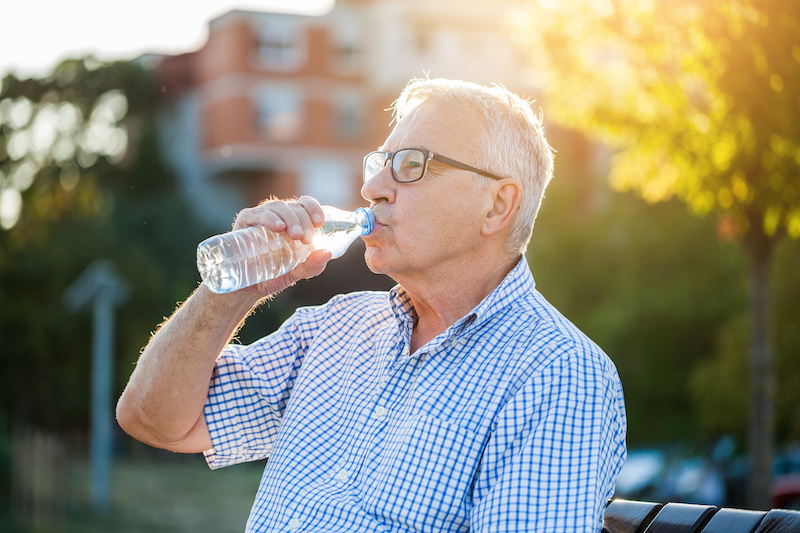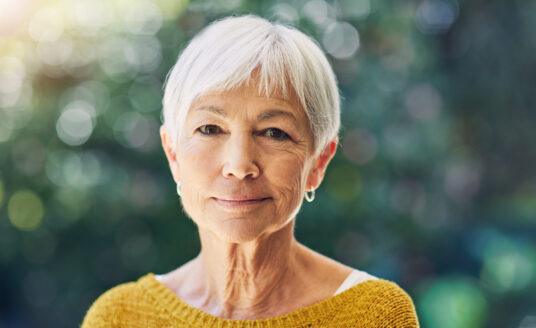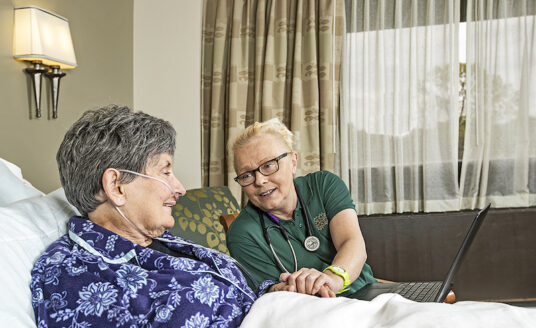Summer can be a season of extremes. A summer rain cools the air as it falls, but produces stifling humidity when the sun reheats the ground. And the amount of water vapor in the air makes the dangers of humidity for seniors very serious.
Dangers of Humidity
Humid weather impedes the process your body uses to cool itself. When you perspire, your body normally relies on air to get rid of the sweat that accumulates on your skin, which cools your body. Humidity causes moisture to stay on your skin longer, which makes you feel even hotter.
High levels of humidity can place people with heart disease and high blood pressure at greater risk because the heart has to work harder to pump blood efficiently throughout your body.
Beta blockers, which are used to slow a person’s heartbeat, limit the heart’s ability to circulate blood quickly enough to cope with the heat and humidity. Cholesterol-narrowed arteries can also limit blood flow to your skin as well.
Experts say that if the temperature is higher than 70 degrees while the humidity is higher than 70 percent, seniors generally tend to be at greater risk.
The measure of how hot it feels when the humidity level is also considered is called the heat index. For example, an air temperature of 85 degrees and relative humidity of 70 percent feels like the temperature is actually 93 degrees.
The dangers of humidity are a major contributor to overheating, and seniors are at greater risk than younger people. Excessive humidity can cause:
- Loss of sleep
- Dehydration
- Emotional Irritation
- Heat and high humidity in the home can also cause mold and mildew to thrive, which can create health problems such as throat irritation, coughing and other respiratory issues.
There is also greater risk of negative effects if you suffer from poor circulation; are on a low-sodium diet; drink alcohol; or take certain medications such as diuretics, sedatives, tranquilizers or blood-pressure medications. Some antidepressants and antihistamines can also block sweating. And opioids can reduce awareness of physical discomfort, which means symptoms of heat stress may be ignored.
If you have asthma, humid air can cause your airways to narrow. And the stagnant humid air you breathe has more pollutants, dust, mold, dust mites, and smoke that can set off asthma symptoms.
You can tell if your asthma symptoms flare up when the weather’s hot and sticky because you probably will experience: observe symptoms such as:
- Trouble breathing
- Coughing
- Tightness in your chest
- Wheezing
The dangers of humidity are more serious if you are overweight, or have heart, lung, or kidney conditions.
A stroke, Parkinson’s disease, dementia, diabetes, and other conditions can dull the brain’s response to dehydration, so that it fails to send thirst signals.
Signs of Heat Problems
As a caregiver or family member, be mindful that your senior loved one may be unaware that they are suffering from heat exhaustion. Watch for some of the following signs:
- Fatigue
- Headache
- Disorientation or confusion
- Irritation
- Muscle cramps
- Rapid pulse
- Nausea or vomiting
- Excessive sweating
- Swelling in hands or feet
If you believe your senior loved one may be experiencing heat exhaustion, move him or her to a cooler, air-conditioned, or shaded area. Apply cool compresses to the armpits, groin, neck, and back. If it can be accomplished safely, immerse them in a cool (but not cold) bath. You can also fan the person while misting them with cool water.
Heat exhaustion and heat stroke share many symptoms, and heat exhaustion can develop into heat stroke. If the symptoms do not improve quickly, seek immediate medical help.
The most dangerous condition caused by heat and humidity is heat stroke, which calls for immediate, professional medical attention. Symptoms include:
- A high body temperature
- Skin that is red, clammy, dry, or hot
- Strong, fast pulse
- Headache
- Muscle cramps
- Fainting
- Convulsions
- Unconsciousness
Beating the Heat
Take it easy. Rest indoors during the heat of the day. If you exercise outdoors, do so in the cool of the morning or the evening. Other ways to stay cool:
- Take a cool bath
- Stay in cool environments
- Dress in lightweight, light-colored clothing
- Wear hats to shade you from the sun
- Limit exposure to direct sunlight
- Drink plenty of fluids
- Avoid alcohol
For more summer safety tips, visit Bethesda’s Health & Wellness blog.
| Whether in independent living, assisted living, memory care, or skilled nursing, Bethesda offers the right amenities, services, programming, and staff to make every day full of purpose. See for yourself and tour our independent living communities, including Bethesda Barclay House – Clayton, Bethesda Gardens – Kirkwood, Bethesda Orchard – Webster Groves, Bethesda Terrace – South County, Village North Retirement Community – Florissant, and The Oaks at Bethesda Villas – Kirkwood/Webster. |
Want to find out more?
If you’d like to stay up to date with Bethesda Health Group, sign up here to receive our blog and newsletters!
"*" indicates required fields
Related Articles
Want to find out more?
If you’d like to stay up to date with Bethesda Health Group, sign up here to receive our blog and newsletters!
"*" indicates required fields



